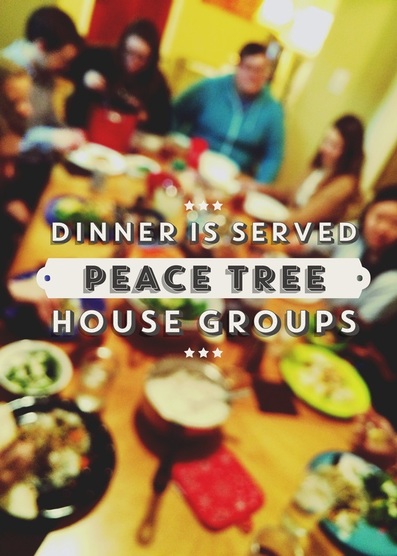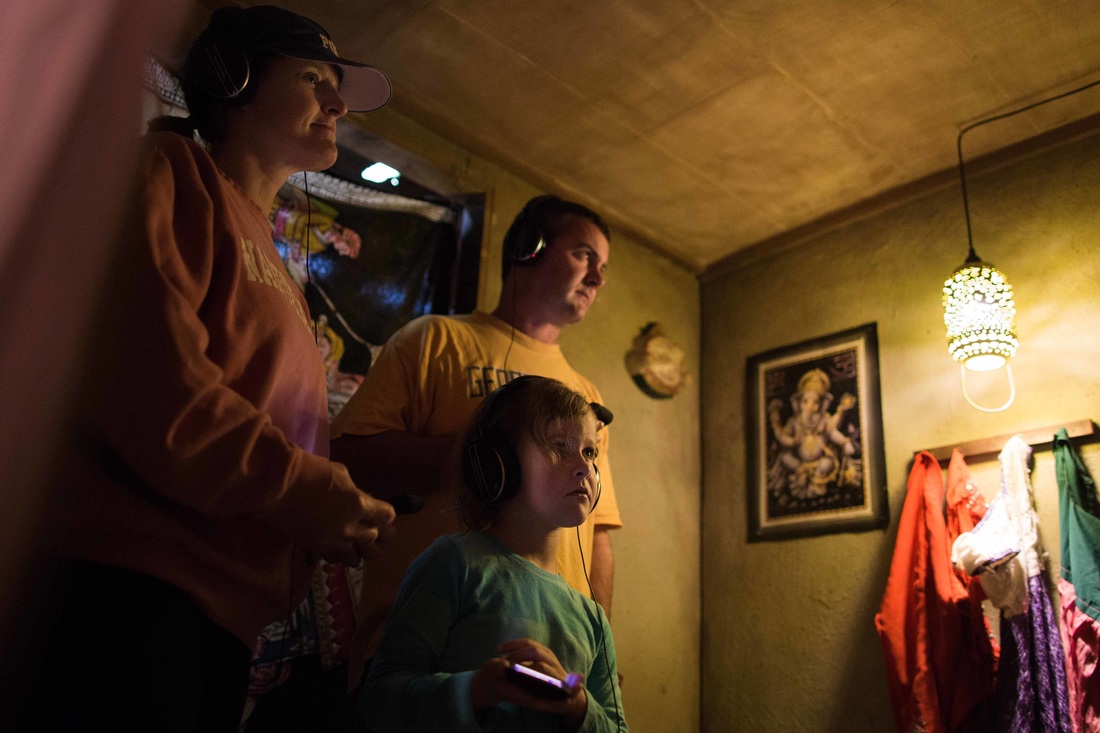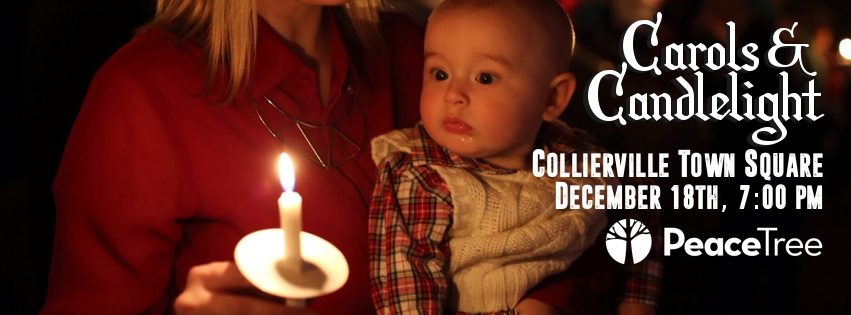|
It’s the Monday after Easter Sunday, and I’m forced to ask, “Now what?” The craziness and busy-ness of Holy Week is behind us. The Maundy Thursday communion services, the Good Friday worship services, and the Holy Saturday egg hunts have all taken place. The capstone of the entire Lenten season, Easter Sunday, has come and gone and left us with memories of packed sanctuaries, massive choirs, full orchestras & praise bands, and stirring sermons which were general enough for the twice-a-year attendee to comprehend yet also specific enough to satisfy the weekly churchgoer who religiously followed the pastor’s 6-week sermon series. So, “Now what?”
It seems as though we’ve treated Easter Sunday as the finish line. Pastors jokingly compare Easter Sunday to their Super Bowl for the year, pulling out all the stops, preaching to the biggest crowd they will most likely see (until Christmas Eve), and encouraging church staff and lay volunteers to put their best foot forward and to do everything with excellence. But, if Easter Sunday is the Super Bowl, then does that mean the season is over? The Easter story was certainly not over for Jesus. Easter Sunday wasn’t a finish line, but instead it was a new beginning, another mile marker in the long story of God’s redemption of this world. Don’t get me wrong, Easter Sunday is certainly a time to celebrate the Risen Christ, but it is also a call to ACTION! So when answering the question, Now what?, perhaps we should take a closer look at what Jesus says to his disciples in the moments following his resurrection. The Gospel of Mark contains Jesus’ words in two alternate endings, but the shorter and longer endings both echo the same sentiment: “And afterwards Jesus himself SENT OUT through them, from east to west, the sacred and imperishable proclamation of eternal salvation.” (shorter ending). “And he said to them, ‘GO into all the world and proclaim the good news to the whole creation.’” (excerpt from the longer ending). Similar wording is seen in the Gospel of Matthew’s closing verses, often referred to as the Great Commission: “GO therefore and make disciples of all nations…” Likewise, the theme of being sent is found in both John and Luke’s gospels: “As the Father has sent me, SO I SEND YOU.” (John 20:21b). “And see, I am SENDING…” (Luke 24:49a) [all emphases are mine]. If the disciples in their shock and confusion, and in their elation and surprise had trouble understanding what came next, Jesus made it clear and simple – “I am SENDING you out into the whole world, so now GO and make disciples!” What shall we do after the resurrection? What happens now? Now, we receive our marching orders. Now, we are commissioned and sent out into the world. Now, we receive our disciple-making assignments. Now, we launch off the starting block of Easter Sunday so that we may continue Jesus’ ministry of love and service. Now, we work together to rebuild God’s family while focusing our eyes on Christ. Every spring, trees produce seed and pollen to be scattered by the wind so that future trees might be reproduced. Likewise, every Easter the Church should produce disciples and Christ-followers to be scattered to the wind to spiritually reproduce and multiply future disciples. We gather on Easter Sunday in order to be scattered by the wind, the same wind that hovered over the waters of Creation, the same breath which the Resurrected Christ breathed out onto his disciples, the same Spirit which drove Jesus into the wilderness after his baptism and which empowers us all in the days following Pentecost. It’s the day after Easter. Now what? Now, we get to work by being the Church, by living together as the Body of Christ, and by loving and serving everyone we meet. Now it’s time to ask ourselves, “With whom shall I share the Good News of Easter morning? Who will I help disciple to faith in Jesus?” May God bless you and send you on mission for Christ, and may you go out into the world with the peace of the Risen Savior. +Peace and Love from Pastor Kris The following press release was written by Compassion International, an organization which exists as an advocate for children, to release them from their spiritual, economic, social and physical poverty and enable them to become responsible and fulfilled Christian adults. Peace Tree is providing volunteers and working alongside Collierville UMC to help host Compassion International's upcoming event. More than 1.4 billion people in developing countries live on less than $1.25 per day, facing challenges most Americans never will. Compassion International’s The Compassion Experience is making a four-day stop in the Collierville area February 19-22 and will bring visitors on a journey into the lives of two Compassion-sponsored children living in the Philippines and the Dominican Republic. The event will be hosted by Collierville United Methodist Church at 454 West Poplar Avenue in Collierville A self-guided tour will immerse visitors in the lives of the children. Through the use of an iPod, a headset and 1,700 square feet of interactive space, visitors will see the children’s homes, walk through schools and markets, and hear life-changing stories of hope—all from the perspective of a child whose life began in poverty. This free event is appropriate for all ages and is an excellent opportunity for anyone who has never had the chance to travel outside the U.S. to get a small glimpse of what life can be like in developing countries. Visitors are encouraged to make a reservation, however walk-ins are welcome. Groups of 20 or more should email [email protected] to reserve their space. For more information about “The Compassion Experience”, visit www.compassionexperience.com, @compassion_exp on Twitter, and www.facebook.com/compassionexperience on Facebook. WHO: Collierville and Memphis-area residents — all ages welcome WHAT: An interactive tour through the life of a child living in a developing country WHEN / WHERE: February 19-22, 2016 Collierville United Methodist Church 454 West Poplar Avenue Collierville, TN 38017  It fascinates me how people can have so many memories that are centered on food. We remember funny conversations during Thanksgiving dinners, favorite dishes that moms cooked for us when we were feeling blue, meals that turned out horribly and yet our loved ones grit their teeth and ate them anyways, and restaurants where we had our first date with our significant other. Friends have shared with me how they’ve remembered potlucks at their childhood church. Young people in Collierville serve breakfast on a monthly basis to individuals who are impoverished or homeless and those memories will stick with these students for a lifetime. Every week at Peace Tree, we make sure to include a meal at every House Group gathering, and we do so for several reasons, memorability being one of those reasons. Food makes moments memorable. To demonstrate this point, here's what we ate this past week at Peace Tree: we had pasta at the Martinsburg Cv House, pizza and salads at Mellow Mushroom during Monday Night Hangout, burgers with a side of macaroni and cheese at the Winleaf Dr House, and chicken stir fry with rice at the Loeb St House. To go along with each of those locations, we’ve studied the book of Acts, shared conversations during Trivia, looked at Old Testament prophecies about Jesus, and discussed what it means to be compassionate as Christians. The food is always delicious, but we also value the discussion and the people with whom we share our meals. Secondly, sharing a meal at House Groups encourages us to live out our core values: Love All, Serve All, Live Together, Follow Christ. Good food tends to fill the room with love, and by thanking God for the food and asking God to bless the meal, we are receiving and returning love to God. For the families who prepare the meal, they are serving others; guests who come to the house also find ways to serve by pouring drinks, clearing tables, and washing dishes. There’s always room at the table so we can eat together. But perhaps the most important reason we include a meal at every House Group gathering is because it follows Christ’s model for ministry. All throughout the Gospel accounts of Jesus’ life and ministry, we see Jesus eating and drinking with people. His first miracle was at a wedding reception where he turned water into wine. Time and time again, concerned Jewish leaders point out that Jesus is eating with sinners, tax collectors, and prostitutes. Jesus often found the most unpopular person from the towns he passed through and invited himself over to their house for dinner. Jesus asks a woman of a different ethnicity to draw water for him at the well and then he proceeds to offer her Living Water and amazing grace. Communion was first celebrated at a meal which Christians refer to as the Last Supper, and even after the crucifixion, Christ consumes broiled fish with his disciples after his walk to Emmaus. Nowadays, it seems as though the Church has divorced its worship services from the very meals that Jesus enjoyed while on earth. If we’re serious about following Christ, shouldn’t we be eating the way he ate with the people he sought out by gathering in ordinary homes and towns where he would’ve walked? Peace Tree is serious about following Christ, so we decided at the outset of this church planting journey to bring Church to our dinner tables. What a blessing it has turned out to be! We’ve seen House Groups multiply, dinner tables extend, and menus expand to include more people. Sharing meals together at Peace Tree gatherings makes the moments memorable and allows us to live out our values, especially our core value of “Follow Christ.” This Sunday, all our House Groups are coming together for a meal and an afternoon of bowling at Funquest in Collierville. If you’re in town and would like to join us, we’d love to have you! Just be sure to RSVP to the event HERE. Similar to our House Group gatherings and every community event before this one, we will be sure to have plenty of food for everyone! (As a side note, we handed out water and pop-ice in July, grilled burgers in August at our Back to School BBQ, delivered baked goods to First Responders on Sept. 11, handed out dog treats at our Blessing of the Animals in October, roasted hot dogs at our Family Fest in November, and poured cups of hot cocoa at Carols & Candlelight in December. We’re not kidding when we say we LOVE sharing food with our neighbors!). We hope you’ll join us for a meal at one of our upcoming House Group gatherings sometime soon. Just remember that the meal is part of our worship time together when we’ll also celebrate communion, pray for each other, and read the Bible together. You can also join us this Sunday in Collierville for lunch and bowling. If you’ve never considered how a meal can be a worship service, try doing this: the next time you eat a meal with your family, go around the table and say what you’re thankful for and how you’ve seen God throughout your day. And if you’re at an established church, try finding ways that you can incorporate meals, potlucks, coffee & donuts, soup kitchens, and any other food-centric ministry into your congregation’s worship services and weekly programs. Christ set the example for all his followers by sharing meals with many different types of people. It’s time for the Church to reclaim this food-centric ministry. It’s time to make God a topic of conversation at our family dinner table. It’s time to share meals together in our church sanctuaries. It’s time to believe that Church can happen at a picnic table in our public parks, and in our dining rooms, and at the local coffee house, and in our favorite restaurants. It's time to believe that Church can happen anywhere. +Peace and Love from Pastor Kris Families come in all shapes and sizes these days. No longer can we drive by a home and assume that a "traditional" family containing a husband, wife, and 2.5 children live inside. More and more families include a step-parent, an adopted sibling, or a foster child. And with these modern-day realities come modern-day challenges: how to visit every family on Christmas Eve or Christmas day, how to please grandparents who live hundreds of miles away, and how to coordinate schedules with an ex-husband or ex-wife who wants to see a child during the winter break.
On top of this, there are many young adults who have started new jobs this year and won't travel home for Christmas. They've formed new family groups with other young people to fill this void. Newlyweds have to determine which spouse's family they will see at worship on Christmas Eve and which family they will visit on Christmas day. There are so many obligations, appointments, and traditions to uphold during this busy time of year that we often forget to celebrate the birth of Jesus Christ. So this year, we plan to celebrate Christmas early on Friday, December 18th at 7:00 p.m. This week marks the end of the semester for students, but families will still be in town. Celebrating Christmas early means you won't have to worry about splitting time with another family on December 25th or navigating an unfamiliar town to attend a worship service on Christmas Eve. And celebrating under the gazebo on the Collierville Town Square means you won't have to worry about parking spots, fighting for seats, or running out of room for you and your family. "Carols and Candlelight" will be a chance to take a Christmas service down to the basics: we'll read the Nativity Story and prepare our hearts for the Christ child, we'll sing beloved carols that echo that story, and we'll gather together with neighbors who long for community and friendship. This Friday is not simply a chance to pause and celebrate Christmas on your schedule; it's also an opportunity for you to invite someone who is searching for Christ this year. Think of the co-worker who hasn't attended a church worship service in years, the neighbor who doesn't do well with large crowds, the classmate who is a spiritual person but who has no faith community. This is an opportunity to share the joy of Christmas and spread some holy-day cheer. We hope you'll join us this Friday, but we also hope you'll text or call a friend who you'll pick up and bring along to "Carols and Candlelight." With so many things happening in the world, it's easy to forget why we celebrate Christmas. "Carols and Candlelight" will provide a much needed reminder. I'm most looking forward to our final carol where each person will be invited to light their candle. It's a reminder of how Christ is the Light that came down to earth, a Light that shines in the darkness, a Light that we follow and shows us the Way. Celebrating Christmas early on December 18th reminds us that Christ is our Light, and when we share that Light with our neighbors, the world becomes a brighter place. We'll see you this Friday night in Collierville. +Peace and Love from Pastor Kris Last Friday, my wife and I visited a “church” of sorts, a place where Americans spend more than $10.4 billion a year. We were greeted at the front door, ushered towards the room on our ticket and invited to purchase food and beverages. When we walked into the main room we saw a sea of strange faces, but we did encounter a couple of friends. We exchanged pleasantries as we walked down the aisle, then we took our seats. A type of liturgy flashed across the screen reminding us to turn off our cell phones, to limit our talking, and to be sure we knew the location of the exits in case of an emergency. Before the main event, we sat through another welcome followed by several announcements of upcoming films. And there we were, sitting in the cold, dimly lit sanctuary of the movie theater. I love movies. Anyone who’s heard me preach in a worship service expects me to reference a movie at some point in the sermon, whether it is planned or sporadic. Since Americans see so many movies a year, and since critically-acclaimed movies along with huge blockbusters have been seen by the majority of the people sitting in the pews of a congregation, it makes sense to me to draw examples out of the most popular movies of the day or classics from cinema’s past when I get up to preach. What really gets me excited about movies is when I see religious references or undertones in the storytelling. There are Hindu references in The Legend of Bagger Vance, Buddhist and Taoist influences in the Star Wars films, and Jewish and Christian archetypes permeating Superman. So you can imagine my excitement when I found a connection between Ridley Scott’s latest sci-fi thriller, The Martian, and three parables (simple stories that teach spiritual lessons) from the Gospel of Luke. Be warned that the following discusses plot points from The Martian and contains minor spoilers. If you have simply seen the trailer for The Martian, you know that Matt Damon’s character, Mark Watney, gets left behind on the red planet following an accident during an emergency evacuation. His crew believed he died on Mars, so Watney is left all alone on the desolate planet with only his ingenuity, creativity, potatoes, and disco music. He also has a home base from which to work, a rover with which to explore, and several other items from past missions, rovers, and satellites that he must seek out in order to survive. Meanwhile, on earth, satellite imagery picks up movement on the red planet which can mean only one thing: Mark Watney is still alive. The folks from NASA start discussing what to do to ensure he stays alive, what the press will do with the news, and whether or not to tell the crew who are ignorant of his survival. But in an unscripted moment during a press conference, Vincent Kapoor (played by Chiwetel Ejiofor) boldly states, “We will do everything within our power to bring him home.” This one sentence became a bridge from the movie to the Gospel of Luke. Luke groups three of Jesus’s stories together in chapter 15 of his Gospel. We commonly refer to these stories as The Parable of the Lost Sheep, The Parable of the Lost Coin, and The Parable of the Lost (or Prodigal) Son. At some point in the movie, Mark Watney assumes the roles of all three lost items: sheep, coin, and son. Jesus asks a mixed crowd of supporters and haters what they would do in a certain situation: You have 100 sheep and one goes missing. Which of you wouldn’t abandon the 99 sheep to go out and find the one lost sheep? When you come home with that sheep, you’d throw a party, right? Now, there are several practical questions that must be asked, but hold onto those for the moment. Right now, I would like you to simply consider why astronauts would travel to Mars. Perhaps it is because we all have an innate animal instinct to explore the unknown, to travel out into the wilderness, and discover the undiscovered. In a way, the crew of the Ares III were like sheep who decided to leave the relative safety of their flock in order to venture out into unknown territory. Thus, Mark Watney becomes the Lost Sheep. Jesus doesn’t stop at sheep; he goes on to tell a story about a woman who has lost a silver coin which is part of a collection of 10 coins she wears in a special headpiece. The woman sweeps the room and searches diligently until she finds the coin. After recovering it, she throws a party for the neighborhood to celebrate. But here’s the kicker: the party probably cost more than the value of the coin she found! Again, there are questions regarding the practicality of such party, but for now consider this: the coin had no control in whether to be lost or found. It was an item that fell to the will of gravity, physics, space & time. The woman had to make the effort to search and retrieve the Lost Coin. Such was the fate of Mark Watney. He could not control the antenna apparatus that knocked him to the surface of Mars hundreds of feet away from his crewmates. He became the Lost Coin, an object that had no control of its surroundings, at the mercy of the elements, and subject to physics, space & time. Let’s pause for a moment and talk about the practical issues raised by these parables and by The Martian. Why would a shepherd leave 99 sheep defenseless in search of one lost sheep? Isn’t it better to cut your losses, protect the 99 you’re sure you have right now, and make sure you don’t lose another one? And the woman who found the lost coin: why throw a party valued greater than the coin which was found? It makes no economical sense to do such a thing! And as my wife pointed out in the car ride home from the movie theater: “Imagine all the good that could have been done for the hungry and the homeless, the refugee and the uneducated with all the money that was spent on trying to save one person who was lost on Mars.” I agreed from a utilitarian perspective that more good could be done with the money, brain power, energy, and time spent on a rescue mission to bring Watney home from Mars if instead those monies and resources were spent on all the people who suffer here on earth. As we drove down Poplar Ave, she continued, “Was it selfish of Mark Watney to allow all those resources and all that money to be spent on him? Is his life more important than anyone else’s life?” Jeff Daniels’s character states, “It’s bigger than one person,” to which Sean Bean’s character replies, “No, it’s not.” Is it possible to justify the use of these resources for one person? At this point in the conversation, it suddenly hit me: The Martian is a parable! It's almost as if Jesus began telling a story that started out, "How many of you after losing an astronaut wouldn't do everything within your power to bring him home?" Now, before my fellow nerds get in an uproar, yes, I know that there are many applicable skills for space travelers found in this movie, and I know that the science is pretty rock solid. But when asking the theological and philosophical question, “How big is God’s Love?” the answer will always be, “God’s Love is bigger than the universe! God will stop at nothing to bring you home!” When a non-believer says, “Explain God’s character to me,” the response of Christian believers should be, “God will use up all of God’s resources to find you, rescue you, and offer you a life that is greater than the life you are living right now.” This may not make any sense to us practically, and it may not fit our systems of logic. But it doesn’t have to. This is God we’re talking about, and our minds cannot comprehend the mind of God. God’s actions exist outside of our logic, and God’s plans are greater than our own plans. You may be asking, “So, how is Mark Watney like the Lost Son?” I’m glad you asked! The son sets out on his own, does some things he probably shouldn’t do (Luke doesn’t go into great detail, but let’s just say the words ‘squandered’ and ‘dissolute living’ show up), but at some point he comes to his senses. He realizes that life is better with his father; life is truly a life worth living when he’s back home with his family. He has to eat some nasty food and work some shady jobs before he sets off for home, but he did it all to survive. He makes the conscious decision not to die. Watney decided he wasn’t going to die on that planet. He used science to create water in a controlled environment, used human feces to act as fertilizer for his potatoes, and put his life on the line numerous times to simply survive as a castaway millions of miles from home until help arrived. But just like the Lost Son, Watney had to make the decision to survive, had to wake up to his reality, and had to put all his efforts into finding a way home. All of us get lost at some point in life whether we’re like the coin that doesn’t even realize it’s lost, or the sheep that follows its animal instinct to wander and explore, or the son who makes questionable choices before waking up to turn his life around. Or maybe you’re like the Lost Astronaut who feels abandoned and alone and thinks maybe your life isn’t worth saving. Dear reader, listen to me when I say that God’s Love for you is bigger than the universe! God will stop at nothing to rescue you and bring you home! God’s grace covers us all, but grace requires sacrifice. God’s own Son died on cross for the world to know how great God’s love is. There was no greater sacrifice than that! When we accept that love, we start making the conscious choice to change, to sacrifice, and to allow parts of our old self to die so that we may become more like Jesus. When this transformation occurs and our lives as New Creation begins, we start to see others the way God sees them, to love others the way Christ loves them, and we encounter the Holy Spirit living through our neighbors. The story of God’s rescue mission is about one person: You! God loves you so much, that God made the greatest sacrifice imaginable in order to bring you home. You may say that this makes no sense, but it doesn't need to make sense for it to be true. God loves you and there's nothing you can do to stop it. If you’re like me and you’re looking for a great movie to see this weekend, I highly recommend The Martian (a.k.a. The Parable of the Lost Astronaut). It currently has a 93% approval rating on rottentomatoes.com and it’s Certified Fresh. The Martian is rated PG-13 for some strong language, injury images, and brief nudity (i.e. Matt Damon’s buttocks). If you see any other spiritual undertones or metaphors in Ridley Scott’s The Martian, please share them in the comments section. +Peace and Love from Pastor Kris |
Peace Tree
Follow the journey of a new church as we answer the call to reach people in Collierville, Memphis, and the Mid-South. Archives
May 2022
Categories
All
|
|
Small Group Gatherings
Sun | Music Fellowship Sun | United Women in Faith Sun | ZUMBA with Kris Mon | Open Play Pickleball Mon | Mellow Mushroom G'town Tue | In the Loop House Group Tue | Leadership Meeting Tue | Book Club Wed | Open Play Pickleball Wed | Pick Up Basketball Thu | Pastor's Bible Study Fri | Family Fun Night |
Large Group Celebration
Sundays at 10:00 AM (doors open at 9:30 AM) Peace Tree at Shelby Drive 9315 E Shelby Dr Collierville, TN 38017 Office Hours Monday through Thursday 9:00 a.m. - 4:00 p.m. |
Mailing Address
Peace Tree UMC 9315 E Shelby Dr Collierville, TN 38017 |





 RSS Feed
RSS Feed